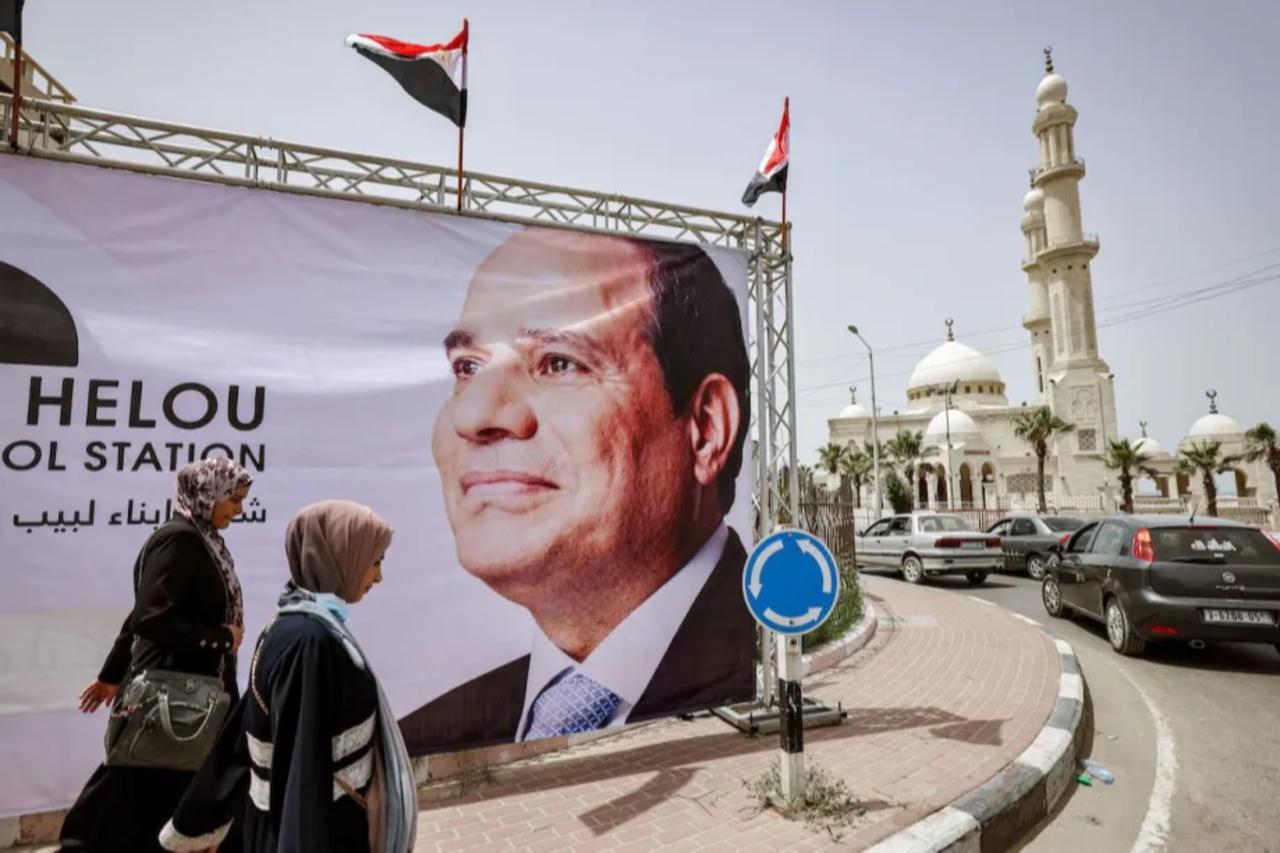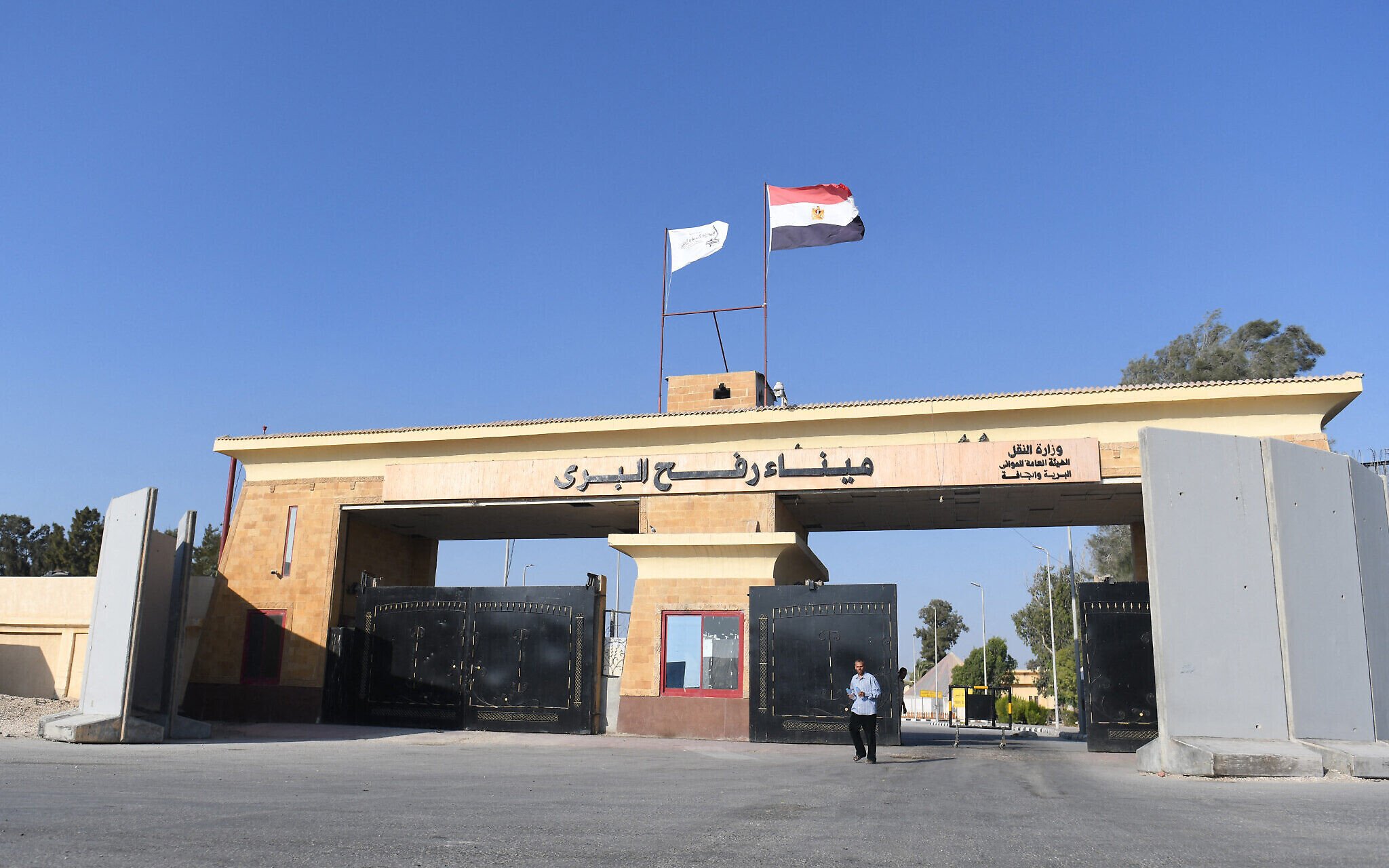
Egypt has been facing a dual challenge on both the internal and external fronts since Oct. 7, 2023.
Internally, the Israel-Palestine conflict and the subsequent regional shifts—most notably the fall of the Bashar al-Assad regime and the rise of Ahmed al-Shara's Hayat Tahrir al-Sham (HTS) group to power—have caused a reshaping of the perceptions of change occupying the minds of many opponents of the Egyptian regime.
This has prompted the government to adopt a stricter approach toward its opponents at home and abroad.
While this security stance has succeeded in silencing dissenting voices, it has created more internal tension.
Examining Egypt's official foreign policy, Oct. 7 placed Cairo in a challenging position. On one hand, its geographical proximity and its role as Gaza's only gateway compel it to maintain a political role it has held for decades concerning the Palestinian cause.
On the other hand, Egypt's apparent lack of support for Operation Al-Aqsa Flood, and its description of it as an "irresponsible" operation, went against public expectations that have always urged Cairo to stand by Gaza.
The concept of stability and security, which President Abdel Fattah el-Sissi values above all else, has guided his actions through two parallel paths via the Ministry of Foreign Affairs and the General Intelligence Directorate.
The first is that Cairo rejects Hamas and wants to replace it. This was evident early in the war in official statements by Sisi, who, in one of his speeches, suggested Israel to "liquidate the resistance in Gaza after relocating civilians to the Negev Desert."
This behavior recently evolved, with Egyptian media now openly and explicitly attacking Hamas after the movement blamed Egypt for failing to deliver aid to Gaza.
Egypt denied the accusation, justifying its position by stating that the intransigence came from Israel, which controls the Palestinian side of the Rafah crossing.
The second path, which Cairo cannot abandon, is to act as a mediator and play a political role to stop the war.
Despite Egypt’s view of Hamas as an “undesirable movement in Gaza” and its description of the group as irresponsible and acting improperly, Egypt could not abandon its role as a mediator alongside Qatar and the United States.
Concluding the war in Gaza is fundamentally a matter of Egyptian national security and a factor in the stability of the Egyptian state.

Egypt is moving politically, intending to reach a ceasefire and a prisoner exchange agreement, paving the way for a post-war phase.
Through diplomatic channels, Egypt hopes and seeks to activate a new governance system in Gaza in which Hamas has no role, to ensure the presence of an authority in Gaza that works within the framework of the Egyptian, Jordanian, and also "official Palestinian" governance systems.
This would achieve Cairo's desire to conclude understandings with Israel and abandon the resistance ideology, which, according to the official narrative, has caused Egypt many problems.
In this context, the meeting between Egyptian Foreign Minister Badr Abdelatty and the Prime Minister and Foreign Minister of the Palestinian Authority, Muhammad Mustafa, held at the Rafah crossing on Aug. 18, 2025, reflected Cairo's trend of supporting the official authority as the legitimate representative of the Palestinian people.
Abdelatty affirmed that Egypt sees the Authority as a key partner in any political settlement and that the future of Gaza cannot be built on the continued dominance of Hamas.
From this, one can understand the statement by the Egyptian minister, who mentioned that Egypt, in coordination with Jordan, is training 5,000 police officers to prepare them to fill the security vacuum in the Gaza Strip in the event of a ceasefire.
This is part of a vision based on handing over Gaza to a unified official authority that will assume governance and administration, thereby achieving Egyptian national security and preventing the recurrence of the cycle of chaos and division.
In a recent development, negotiations took place in Cairo between the Egyptian government and a Hamas delegation led by Khalil al-Hayya, who arrived in Cairo on Aug. 12.
The objective was to reach a comprehensive ceasefire and prisoner exchange agreement as a preliminary step to ending the war. The negotiations resulted in Hamas's agreement of a proposal submitted by Qatar and Egypt for a ceasefire.
The mediators informed the Israeli side of Hamas's willing to accept and are now awaiting an Israeli response.
Cairo wants Israel to accept the proposal so that it can proceed with implementing the ceasefire and allowing aid to enter. As Abdelatty said, "Egypt is ready to flood Gaza with aid if Israel does not impede its entry."
All eyes are now on Netanyahu, who will place Cairo in a new predicament if he does not agree to the proposal and insists on proceeding with his plan for a full-scale invasion of Gaza.